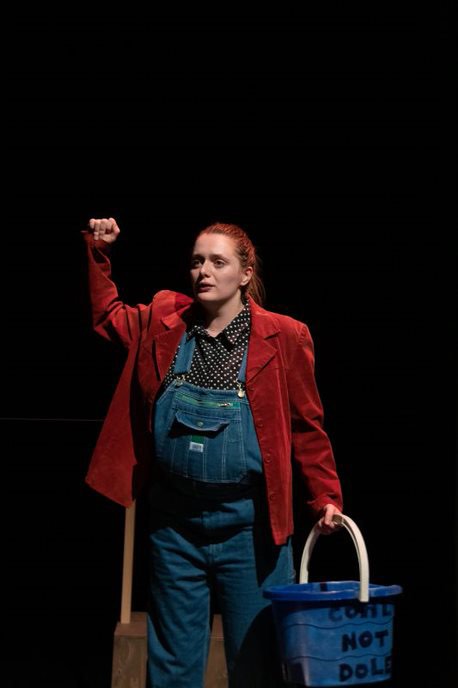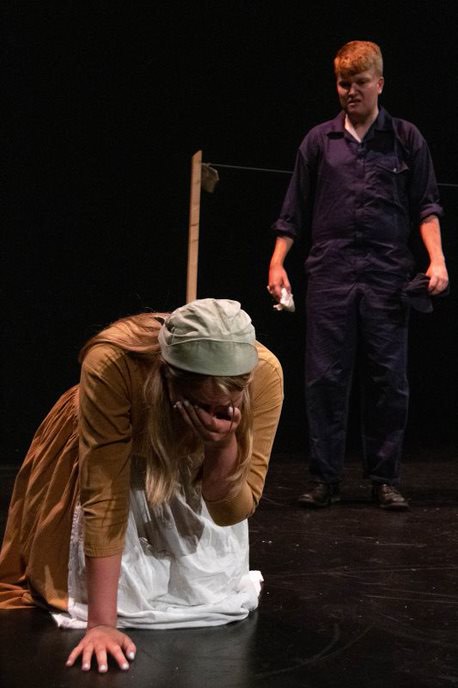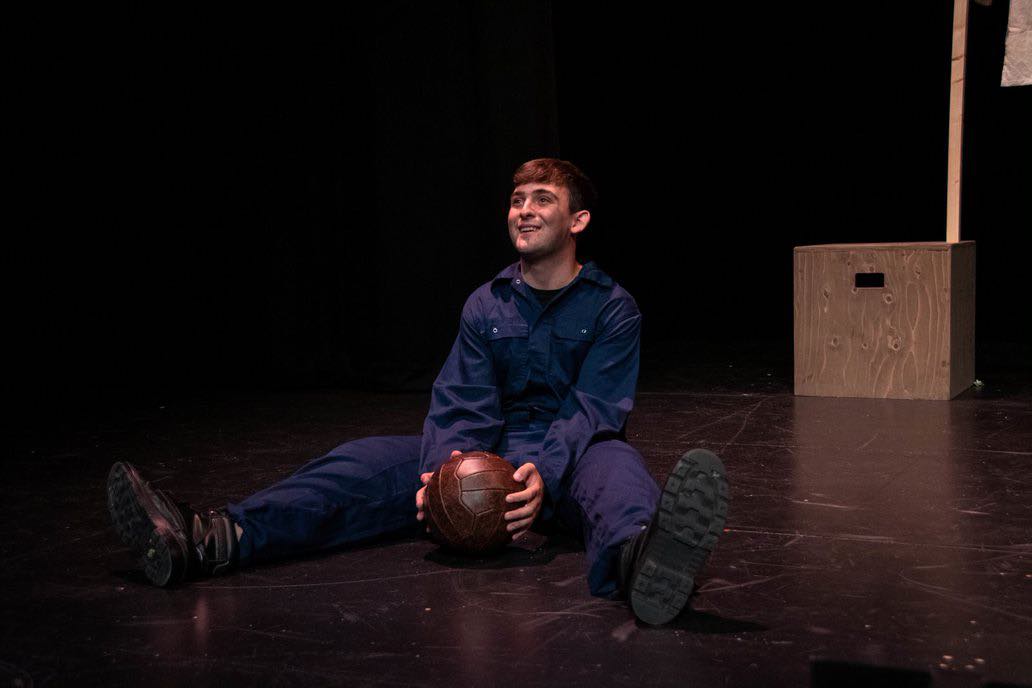Despite efforts in recent years to diversify theatre, for many, it remains an impenetrable fortress of elitism accessible only to the London-based upper-middle classes and their offspring. As such, it’s always refreshing to see works staged that not only fully cast working-class actors from the North, but also honour their history. LS6 Theatre’s new production ‘Life Below’, written and directed by Dec Kelly, is a welcome and thoughtful portrayal of an industry and lifestyle as full of heart as it is of hardship.
The play follows two generations of the Gooder family who must navigate the privations, danger and precarity of a way of life centred on the mining industry. Opening with an ominous voiceover from the Iron Lady herself announcing the infamous pit closures of 1984, the Gooders are underdogs from the offset. Miner Ted (Luke Holland), although initially pessimistic about protesting, adopts the tenacity of his pregnant wife Rosie (Maddie Bell) as they both vow to fight against the government for the sake of the local area.

Yet their fight is also deeply personal. Rosie’s discovery of a chest of ancestral letters, detailing the lives of her mining family 150 years prior, means that her fight is not solely to secure stability for her unborn child but the continuation of her familial history. The letters also cleverly enable the narrative to hop between eras with only the occasional anachronisms in the script – “see ya”; “leftovers”; “yeah” – piercing the illusion. Still, it is made clear that the battle between the powers and the people is one that transcends time.
The scenes are woven together with the music of Alan Wood, the folk singer whose songs explore the rich heritage of the mining industry in Yorkshire. It’s a soft, yet effective, touch that highlights the power of oral tradition. The pits aren’t merely a source of income, but also a source of culture for the miners and their families.

The performance is aided by a strong cast and – notably for a degree show set in the North – the lack of hammed-up accents. Oran Cosimini and Ellie Peters gave Jack and Sarah, the children of the Victorian Gooder family, a skilled balance of spirited childishness and doe-eyed naivety to lay bare the sadness and injustice of child labour. Though special praise must go the matriarchs of each generation. Bell’s rousing picket line speech berating the government for draining the lifeblood of her community is delivered with aplomb and passion. However, the most moving moment of the play comes from Mary (Amy Kaye) who, for all her steadfastness and resolve, crumbles under the grief-stricken tension between her and her husband in a captivating turn of emotion. She breaks, only to mend herself once more in the next scene for the sake of her children.
Even though the North presented in ‘Life Below’ is a far-cry from the hackneyed images of flat caps and whippets, does it fall short of dispelling the most persistent stereotype of them all: it’s grim up North? Perhaps, but maybe that doesn’t matter. Towards the play’s end Rosie proclaims that “[her] father’s lungs were black with stories”. These unheard stories of working-class history are crucial not because of their focus on adversity, but because they celebrate communities willing to rally together in the face of despair. To enact change, as the play shows, one must go to the pits and back again.
Life Below continues its tour at: The Crescent Theatre, Birmingham on 14th August; Frenchgate, Doncaster on 21st August; and Joseph Rowntree Theatre, York on 25th August.
Images: Abby Swain

